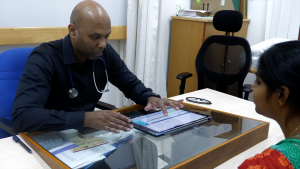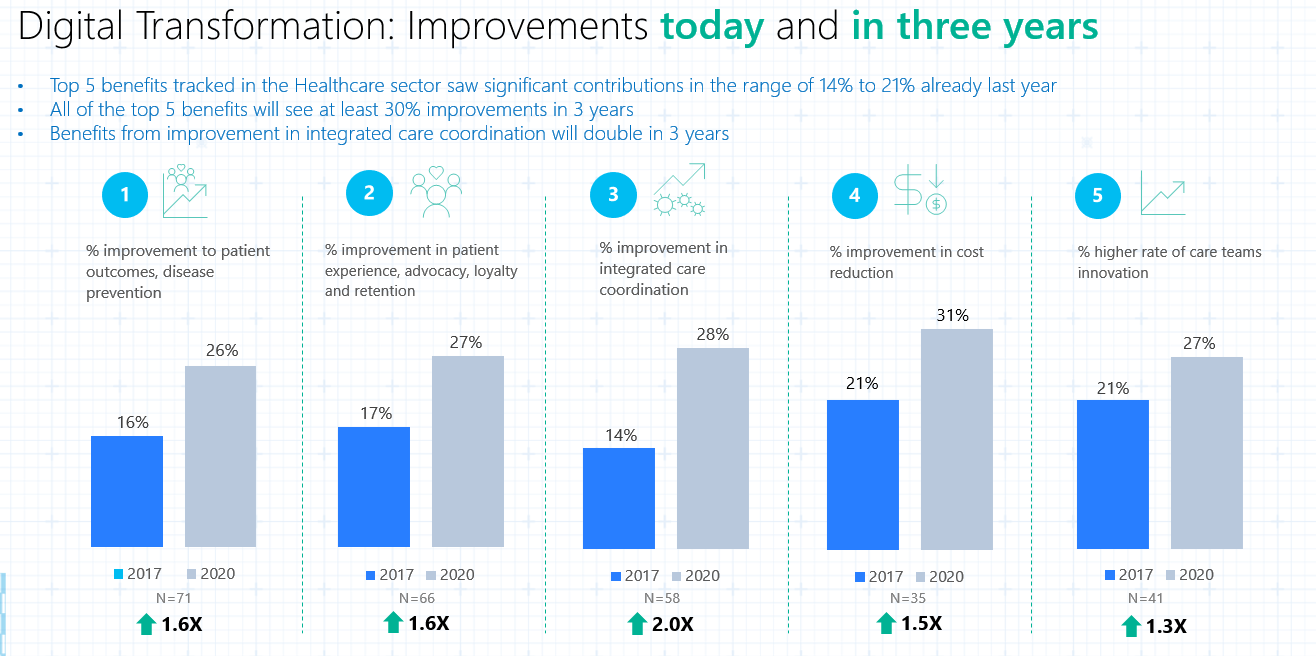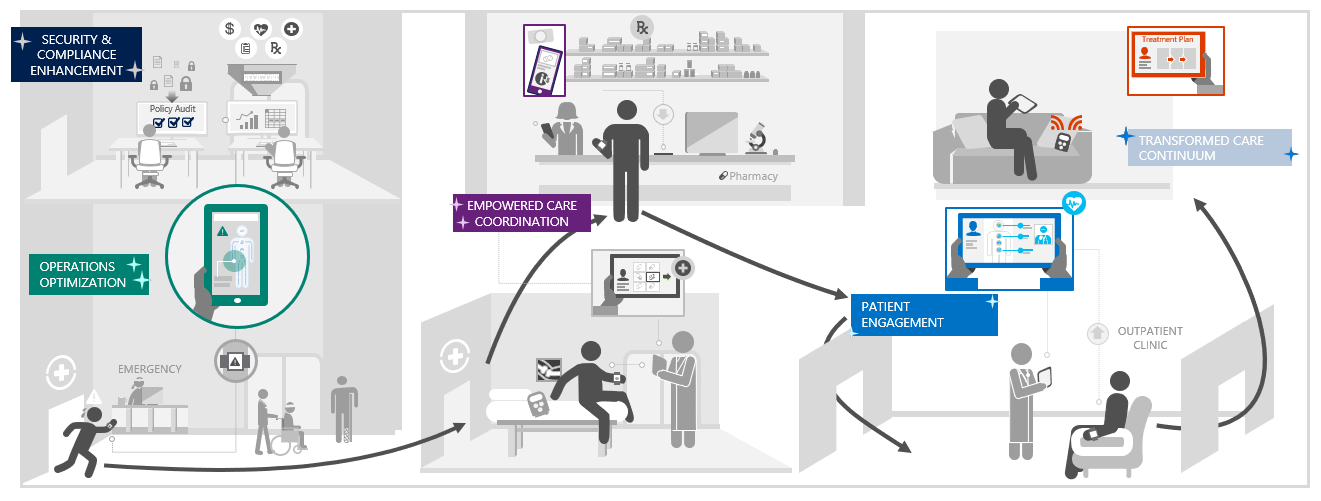By Keren Priyadarshini, Regional Business Lead, Worldwide Health, Microsoft Asia
 Cardiovascular disease is one of the leading causes of mortality and morbidity in India. When Apollo Hospitals’ founder Dr Prathap C. Reddy lost a patient to heart disease in 1983 due to the lack of medical resources, he turned to technology to transform healthcare delivery within his organization, as well as for the nation.
Cardiovascular disease is one of the leading causes of mortality and morbidity in India. When Apollo Hospitals’ founder Dr Prathap C. Reddy lost a patient to heart disease in 1983 due to the lack of medical resources, he turned to technology to transform healthcare delivery within his organization, as well as for the nation.
 Today, Apollo Hospital is a pioneer in advanced healthcare enabled by cutting-edge technologies such as cloud, big data analytics, and Artificial Intelligence (AI). Through a partnership with Microsoft’s AI Network for Healthcare, Apollo Hospitals can now apply both Machine Learning (ML) and AI to analyze cardiovascular health records and data from the local population, to help develop an Indian-specific heart risk score. This model is in fact two times more accurate than existing models utilizing data from other foreign countries with a different set of measurable factors.
Today, Apollo Hospital is a pioneer in advanced healthcare enabled by cutting-edge technologies such as cloud, big data analytics, and Artificial Intelligence (AI). Through a partnership with Microsoft’s AI Network for Healthcare, Apollo Hospitals can now apply both Machine Learning (ML) and AI to analyze cardiovascular health records and data from the local population, to help develop an Indian-specific heart risk score. This model is in fact two times more accurate than existing models utilizing data from other foreign countries with a different set of measurable factors.
Today, doctors at Apollo Hospital can provide more accurate cardiovascular health profiles, predict potential coronary ailments in the next 10 to 20 years, and chart out better health plans to ensure optimum well-being of the patient, all with the help of AI and ML. As such, doctors are empowered to work towards the betterment of universal public health instead of firefighting unexpected symptoms and unforeseen health problems.
Embracing Digital Transformation to Develop Future-Ready Healthcare Organizations
Organizations like Apollo Hospital are great examples of how business leaders can embrace digital transformation to improve existing processes, while countering business concerns in preparation for future demands.
In my conversations with healthcare leaders in the region, many recognize the urgency of embracing digital transformation to improve the delivery of services and develop patient-centric systems. The goal of providing a “health continuum” – in which patients move through a comprehensive array of care services that enable healthy leaving and greater preventive care, better hospital treatment, advanced home and elderly care – is becoming increasingly important.
As for those who have already embarked on a digital transformation journey, many are already seeing tangible benefits.

In a recent study conducted in partnership with IDC Asia/Pacific with 159 healthcare organizations, we found that those that have implemented digital transformation initiatives are already reaping benefits today in the range of 14% to 21%. This is only the beginning as they are expected to gain even more by 2020. Particularly, improvements in integrated care are expected to double in three years.
An immediate initiative that healthcare organizations are focused on is in optimizing existing IT and data operations. This will serve as the foundation for better patient service and records, as well as improved admissions and patient records management, and ultimately prepare themselves for a future where hospital-based care is increasingly diminished.
Leveraging Data to Unlock Intelligent Healthcare
There is no doubt that there will be a shift towards a more patient-centric care-based system by 2020. This system aims to empower patients to manage their own health enabled by intelligent technologies from an advanced healthcare system. Therefore, organizations of today cannot merely rely on improving efficacy to drive better outcomes. Healthcare needs to be intelligent and preventive, rather than reactive, and the key to unlock this transformational potential of the healthcare industry is data.
Given the amount of data that is available and collected within healthcare entities today, healthcare organizations have an opportunity to transform to become intelligent organizations, where they can disrupt existing operations by making sense of the information they own. I urge business leaders to adopt a three-step methodology:
1. Collection of data in a structured manner to improve patient care
By capitalizing on big data analytics, healthcare organizations can develop real-time insights to provide immediate and accessible care for patients. In fact, the use of Electronic Medical Records (EMR) can make patient records available instantly and securely to authorized users in a coordinated and synchronized ecosystem.
2. Optimizing existing products and services with data
By leveraging existing data, healthcare organizations can seek to optimize existing processes through real-time insights to improve patient care. This can be achieved by introducing predictive analytics, Internet of Things (IoT), and AI to implement predictive and integrated care services. These intelligent treatment models can increase the possibility of preventing diseases to begin with, instead of working on a cure.
3. Using data to develop new services to improve healthcare continuum
IDC Asia/Pacific predicts that by 2020, hospital-based care will continue to shrink, and that the focus on “health” will translate to healthy living. A combination of smart medical devices, IoT, cloud, data analytics, and AI will contribute to this evolution. Data can help unlock the next frontier of healthcare, especially in areas of preventive care, and telemedicine, where services are brought outside of hospitals.
It is heartening to see that business leaders within the industry already recognize the importance of data. From the same Study, 43% of respondents are already using data capitalization, or how data is being used as a capital asset within the organization, as a key metric to measure their digital transformation journey today. In addition, the top priority this year in terms of technological investments to support digital transformation initiatives are big data analytics, cloud and mobility solutions.
But with all things technology, trust plays a critical role. The proliferation of modern technologies has resulted in heightened concerns on data privacy and security. In fact, cybersecurity and growing threats was the second-ranked challenge identified in the Study. Clearly, to initiate a successful digital journey, organizations need to have in place a robust framework to ensure that data is stored and used in a trusted and responsible manner.
With a secure and safe platform, data can be fully utilized responsibly by technology such as AI to give rise to boundless possibilities in the realm of healthcare.
Artificial Intelligence: The Next Frontier of Healthcare
By estimates. IDC notes that 40% of digital transformation initiatives in Asia Pacific (excluding Japan) will be supported by AI capabilities that can provide timely, critical insights for new operating and monetization models by 2019.
In my opinion, the opportunity for AI in healthcare isn’t just about making doctors and healthcare providers more efficient in their work or implementing robotics in operating theatres. It is about improving people’s health and saving lives.
AI in healthcare is about developing intelligent systems that assist and support the wisdom and experience of well-trained medical professionals in making better data-driven decisions and taking actions that best support patient needs. It does this by gathering and churning massive amounts of data quickly and intelligently to identify patterns often overlooked or undiscovered in the traditional practice of care.

Last year we embarked on Healthcare NExT, a Microsoft initiative which aims to accelerate healthcare innovation through AI and cloud computing. Working side-by-side with the healthcare industry’s most pioneering players, we are bringing Microsoft’s capabilities in ground-breaking research and product development to help healthcare providers, biotech companies and organizations around the world use AI and the cloud to innovate. Our work with Apollo Hospital is one instance of how we can tap on the power of AI to innovate and deliver the next frontier of healthcare.
I am certain that in the very near future, AI will bring about an intelligent healthcare paradigm that will address today’s challenges, while ensuring a higher quality of care.
To learn more about Microsoft in healthcare, visit https://enterprise.microsoft.com/en-us/industries/health/





